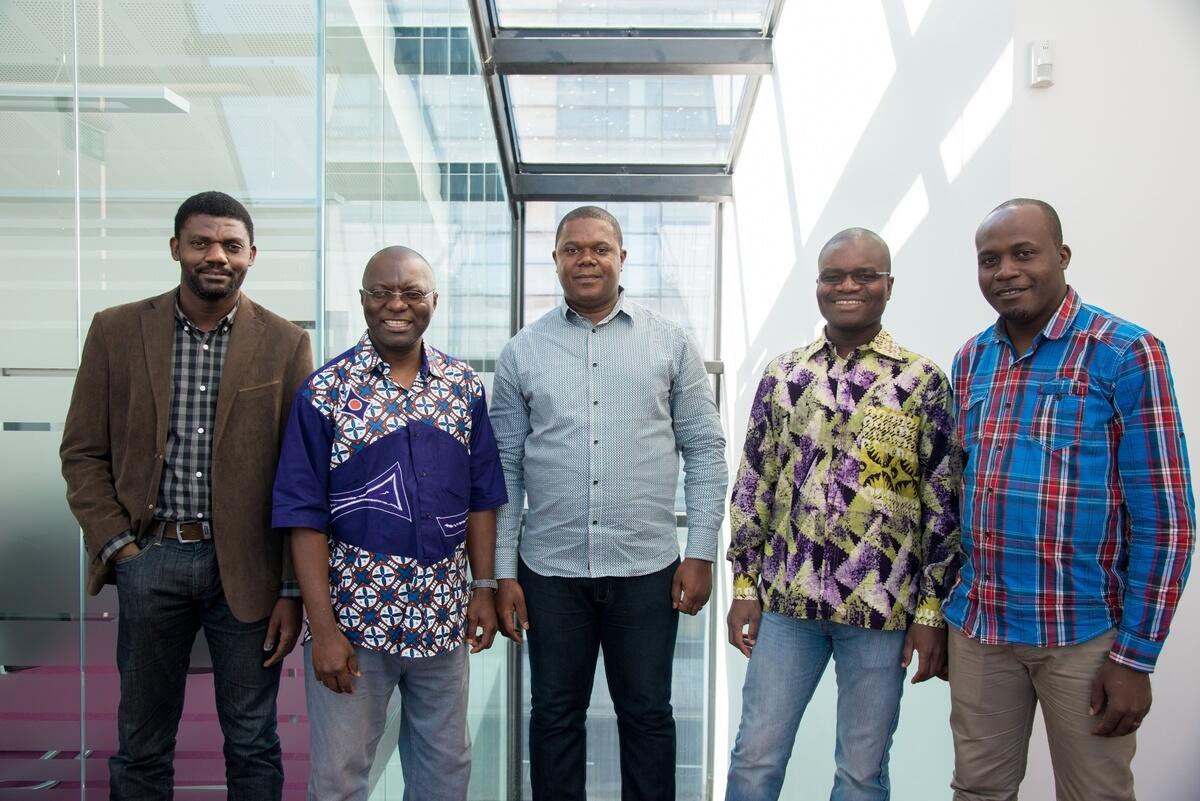
Monday 25th April is World Malaria Day and it provides us with an opportunity to look at some of the cutting edge work that is being carried out at LSTM to prevent and treat the disease, particularly in Africa where the burden of disease is highest.
Staff and students from LSTM affiliated with the Malaria Transmission Reduction and Elimination Centre (MalTREC) seek solutions to the growing problem of insecticide resistance by identifying the underlying causes of resistance and by designing new insecticides and interventions. However these technologies will have a reduced impact on disease if there is insufficient human capacity in region to develop and implement them. Consequently LSTM staff is committed to mentoring the next generation of vector biologists on whom this role will fall. There are presently a number of Wellcome Trust fellows in Public Health and Tropical Medicine supported by LSTM and, in advance of World Malaria Day, five of the fellows within the Department of Vector Biology joined with post-doctoral staff and faculty to develop a unified response to the challenges posed by insecticide resistance.
Professor Martin Donnelly who heads up MalTREC at LSTM said: “As an institution LSTM is unique in its approach of delivering research from bench to bedside and it is of vital importance that we are also part of the push to build capacity where the burden of disease is the highest. 90% of malaria deaths occur in Africa, by mentoring this group of outstanding early career scientists we are promoting the next generation of African vector biologists who will be responsible for finding solutions to one of the continent’s most pressing health needs.”
The Wellcome Trust Fellows who attended visited Liverpool last week were (from left to right): Dr Mohamadou Chouaibou, based at Centre Suisse de Recherches Scientifiques in the Ivory Coast; Dr Rousseau Djouaka a medical entomologist at IITA, Benin; Dr Cyrille Ndo a medical entomologist based at OCEAC, Cameroon and a Lecturer at Douala University; Dr Luc Djogbenou, a molecular entomologist based at the IRSP Benin; Dr Cyrille Ndo a medical entomologist based at OCEAC Cameroon and a Lecturer at Douala University and Dr Emmanuel Elanga, a medical entomologist based at OCEAC, Cameroon.
In the last 15 years there has been remarkable progress in reducing incidence of disease and deaths from malaria particularly in sub Saharan Africa where the need was and is most acute. Much of this reduction has been driven by the use of insecticides targeting the mosquito vectors of disease, but the emergence of insecticide resistance within mosquito populations now threatens these gains.
- Bednets: endless testing stalls fight against resistance? FT Malaria report(link is external) with comments from Professor Hilary Ranson.
- A HM Treasury video released on World Malaria Day 2016 recorded on the recent visit from Bill Gates and George Osborne to LSTM discussing malaria funding.